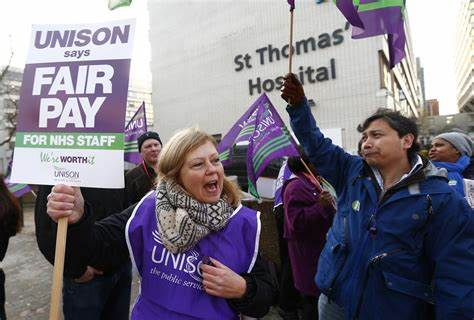The British Medical Association (BMA) has announced that 86% of consultants in England have voted to take industrial action, protesting against government plans to change their contracts. This strike would be the first by senior doctors in the NHS in over 20 years.

The BMA believes that the government’s plans would negatively impact patient care quality and result in a “brain drain” of consultants from the NHS. On the other hand, the government argues that the changes are necessary to improve patient care and efficiency.
This strike vote adds to the challenges already faced by the NHS, including staff shortages, increasing patient demand, and budget cuts.
Meanwhile, the Royal College of Nursing (RCN), the nursing union, is also conducting a ballot on industrial action. However, it has not yet reached the required threshold for a strike vote. The RCN is disappointed with the current ballot results and will continue consulting with its members on the next steps.
If both senior doctors and nurses go on strike, it would significantly disrupt the NHS, which is already under strain. The timing of any potential strikes remains uncertain but could occur as early as this summer.
The government has expressed disappointment over the BMA’s decision to ballot for industrial action but has stated its commitment to finding a solution that prioritizes patient interests.
Given the ongoing dispute between the government and the BMA, it is unclear when a resolution will be reached. Consequently, the NHS is facing a period of uncertainty and disruption.
